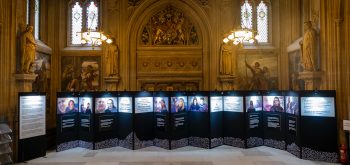The Office for Students (OfS) has issued a new set of guidelines to establish a firmer approach to managing lawful protests on university campuses within England.
The guide aims to help balance between the protection of free speech and the expression of ideas. The guidelines set in place duties that will come into force in August 2025. They do allow for restrictions on unlawful speech but make clear ‘the bar to restrict lawful speech … is particularly high’.
This comes shortly after the successful appeal by Liberty against unlawful anti-protest laws. The Government will not continue to defend this appeal. The Director of Liberty, Akiko Hart, stated, ‘This Government has finally seen sense and this backdown is a step forward for the right to protest after years of attacks by those in power.
The guidelines advise universities in dealing with ‘inflammatory disputes’, and follows recent news that universities such as Cambridge are seeking High Court injunctions against pro-Palestine protests. Concerns have been reported by the BBC raised by Krant Kynaston, for the European Legal Support Centre, that the injunctions would be an ‘exceptionally wide-ranging and uncalibrated interference’ with human rights.
The guidelines emerged shortly after the overturning of key sections of the Public Order Act 2023 and the Police, Crime, Sentencing and Courts Act 2022. These legislative actions reduced the standard for establishing protests as illegal or disruptive, allowing police to act and break up protests more liberally.
Julian Sladdin, a partner at the law firm Pinsent Masons, told the Guardian that whilst the guidance gives some ‘much needed clarity’, universities are dealing with ‘extremely complex and often polarising issues on campus’ which are as yet not ‘sufficiently addressed by the guidance’.
The guidelines from the OfS are clear that it is the institutions responsibility to ‘take reasonably practicable steps to secure lawful speech’. Susan Lapworth, OfS chief executive, said ‘The OfS is determined to ensure universities continue to be the essential places in society where academic freedom and free speech within the law are prized and given the utmost protection’.
Arif Ahmed, Director for Freedom of Speech and Academic Freedom at the OfS, said ‘Universities may sometimes need to regulate the time, place and manner of the expression – when, where and how you speak – but they can’t ban ideas’.






